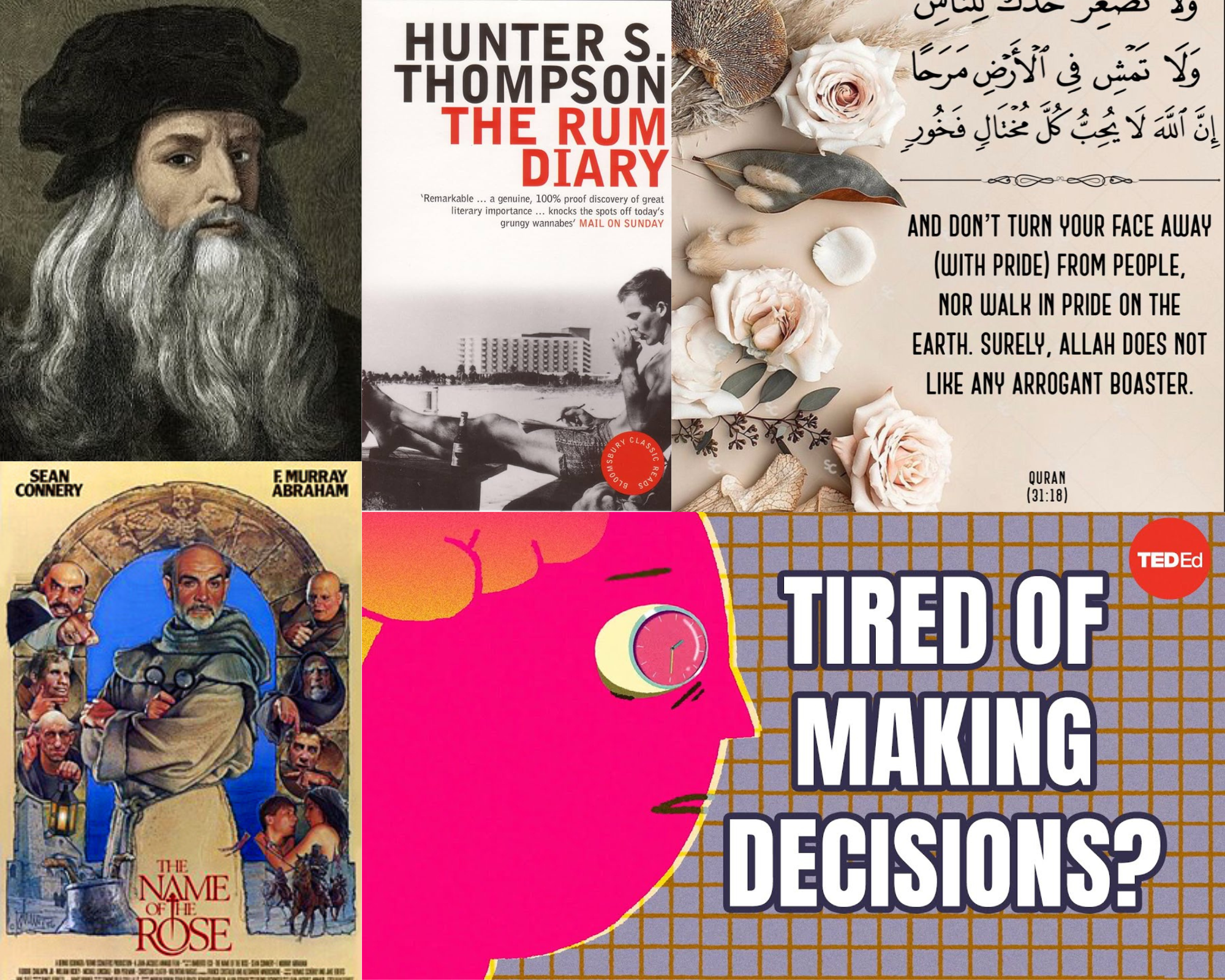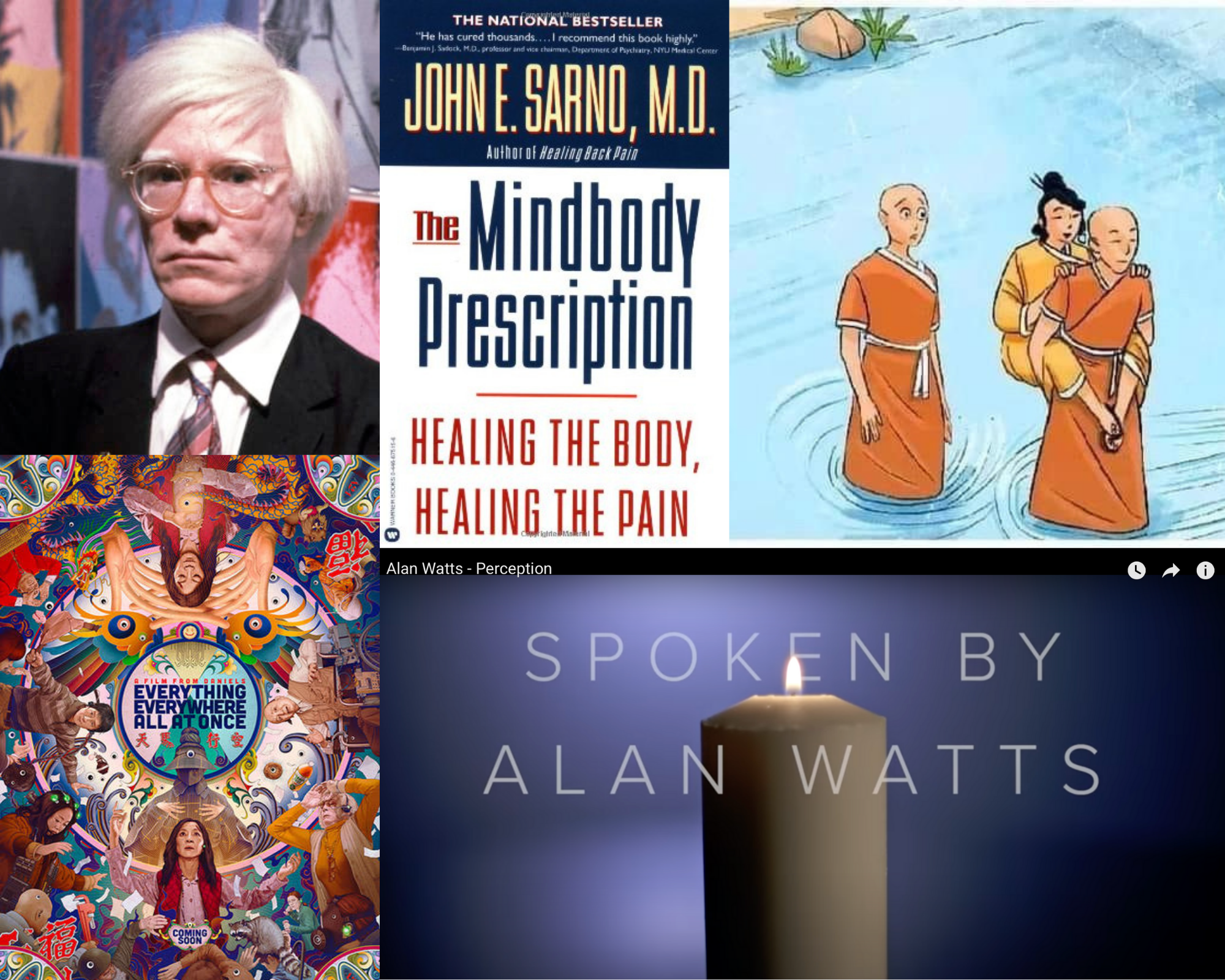Sunday Supplement #180 (October 20th, 2024)
Below is another Sunday Supplement with a quote worth sharing, a book worth reading, a movie worth watching, brainfood worth consuming, and a spiritual passage worth pondering.
Please take something away from these recommendations that enriches your week ahead!
Quote of the Week:
“All our knowledge has its origins in our perceptions.”
– Leonardo da Vinci
Book of the Week:
The Rum Diary – Hunter S. Thompson
Hunter S. Thompson was an American journalist and author famous for establishing a genre of journalism called “Gonzo,” where the writer becomes a subjective central figure and participant in the narrative.
Thompson’s most famous works are probably Fear and Loathing in Los Vegas and Hells Angels, the latter being a book Thompson wrote after spending a year with the motorcycle club to write a first-hand account.
The Rum Diary was Thompson’s second attempt at a novel (it was started in the late 1950s), but it was published in 1998, a long time after he became famous.
Set in the 1950s, the story follows a journalist, Paul Kemp, who moves from New York to San Juan, Puerto Rico, to work at a major newspaper. The novel depicts a messy, violent love story involving the Americans who work for the newspaper.
Thompson wasn’t a fan of the novel and, apparently, only agreed to publish it because he needed the money. I found the book engaging and a brilliant exploration of idealism, disillusionment, and lust.
Movie of the Week:
The 1986 film The Name of the Rose was based on Umberto Eco’s 1980 Italian novel, which sold over 50 million copies worldwide.
Sean Connery stars as a Franciscan friar, William of Baskerville, who investigates a series of mysterious deaths in a medieval abbey.
In addition to Sean Connery’s BAFTA-winning performance, the supporting cast includes a young Christian Slater, F. Murray Abraham, Valentina Vargas, Michael Lonsdale, William Hickey, and Ron Perlman.
Jean-Jacques Annaud brilliantly directed the murder mystery period piece. Check out the reasons for the film’s R rating, but definitely give it a watch if it calls to you.
Brainfood of the Week:
How To Make Smart Decisions More Easily | TED-Ed
This TED-Ed video focuses on decision fatigue. It starts by highlighting a 2011 study on judges’ parole cases and how the time of day significantly impacted decisions.
Decision fatigue occurs when there are too many big decisions in our day. When we experience decision fatigue, we become prone to errors.
The video then highlights different ways decision fatigue can impact our lives and provides strategies for avoiding it.
I find it incredible how our perception of a matter can significantly change depending on our fatigue level. This video is a good reminder to avoid overloading yourself.
Closing Spiritual Passage:
“And do not (contemptuously) turn your face away from people, and do not walk through the earth exultantly.”
– Surah Luqman 18
This Quran passage speaks to staying humble in life. Arrogance and cockiness come in many different forms, and I appreciate the examples in this verse.
When I typically think of unhealthy pride, I think of boasting. The first part of the Quran verse discusses turning away from people in contempt. This is a great reminder to check your ego and not judge others.
For me, this verse is a timely reminder to quiet my mind and attune to gratitude and humility. Our perceptions are our own to control, and this verse gives examples of wayward paths.
Decide how you want to perceive the world, and have a blessed week ahead!

